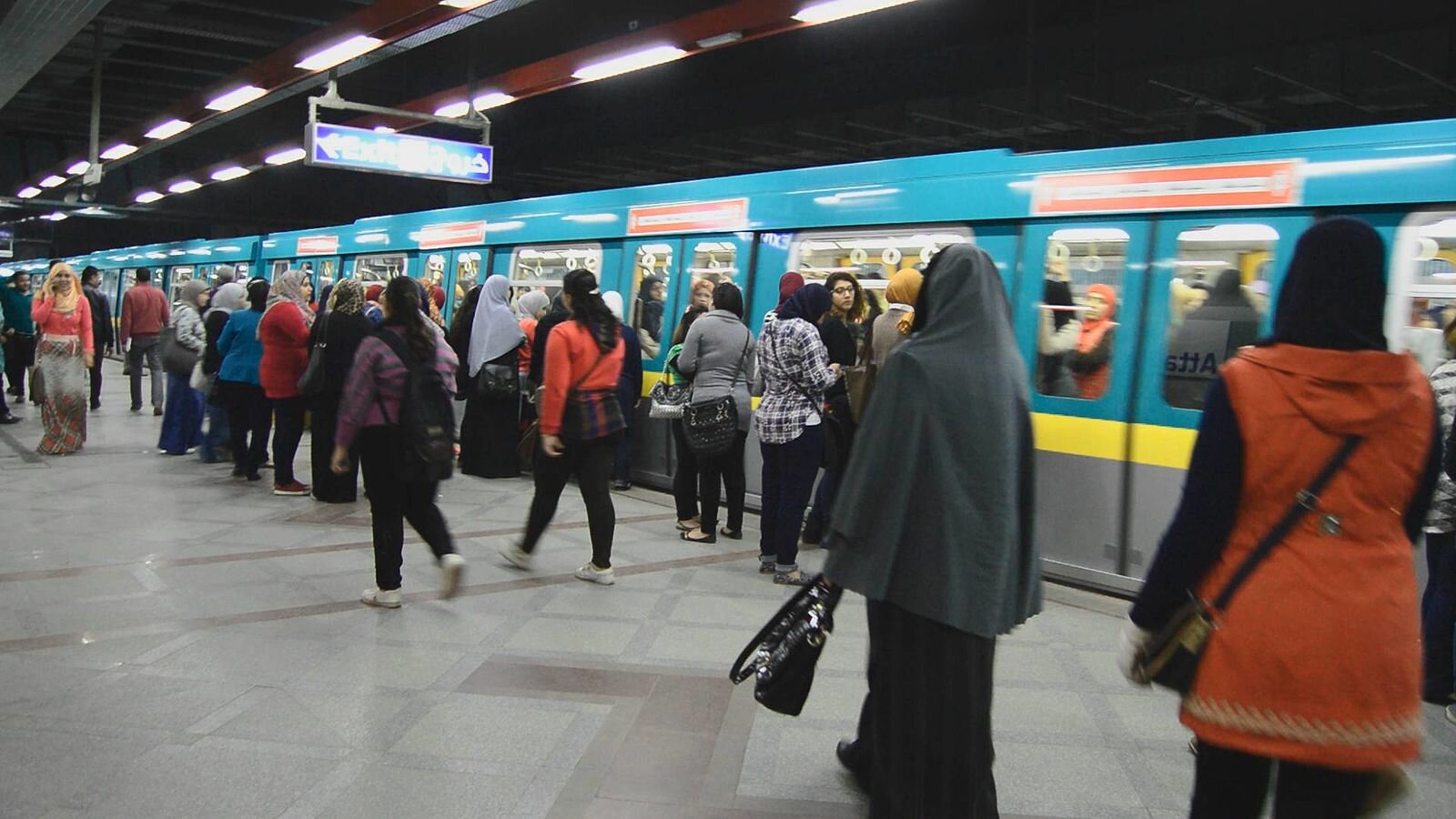Sexual harassment in Egypt
Trigger warning: this blog post discusses sexual harassment, including descriptions of specific types and instances of physical and verbal sexual harassment.
Women protest against harassment in Tahrir Square, Cairo.
This blog post is about sexual harassment in Egypt, which is something that we hope no traveler in Egypt will experience, but feel is important to discuss and be aware of.
Sexual harassment is a common occurence in Egypt and happens frequently to women. It is something that many women who travel to Egypt experience in some form, however it is not something that happens to everyone. Even so, the pervasiveness and frequency of sexual harassment makes it prudent to be aware of the possibility of it occurring on your trip and to have mitigation and avoidance strategies in your toolkit to address it if it happens.
Before we get started, first, I want to acknowledge and thank my friend Liz, who contributed hugely to this post. It would not have been possible to discuss this issue in as much detail and with any sincerity without her input. She shared her experience as a white, cis-gendered, U.S. American woman who lived in Egypt off and on for several years, and experienced sexual harassment in many forms during that time. Liz also offered her strategies for mitigation and avoidance, which we hope will help equip future travelers to Egypt to deal with any potential sexual harassment they face. As a cis-gendered white male writing this article, I owe it to Liz for elucidating the details of what types of sexual harassment occurs in Egypt, where it occurs, and solid mitigation and avoidance strategies, according to the lived experiences she had.
Next, I want to acknowledge that this post does not have a large enough diversity of perspectives in order to paint an all-encompassing picture of what sexual harassment in Egypt is like. Different people, based on factors like gender, skin color, hair color, body type, age, appearance, etc., experience different levels and types of harassment and the same strategy to handle the harassment may have more or less efficacy, depending on who is using it. For example, a white woman may get more attention and harassment due to her lighter skin standing out more in Egypt, where a majority of women have darker skin and hair. However, when Egyptians see a white woman, they often assume she is foreign, having the backing of a powerful government, embassy, and the support of the Egyptian police who go above and beyond to protect tourists. Thus, they may be less likely to perpetrate a more serious act of harassment than if the woman were a woman of color, possibly perceived as Egyptian, and not having the same safeguards. While the situations we discuss could occur to any person, they will almost always impact women instead of men. As for the strategies we share, they may work differently depending on the woman who is employing them. We hope to expand this blog post in the future to include perspectives from more women.
Definitions
For the sake of this blog post, we will use the following definitions for sexual harassment:
(from Oxford Languages): Behavior characterized by the making of unwelcome and inappropriate sexual remarks or physical advances in a workplace or other professional or social situation.
(our definition regarding Egypt, taking into account actions that are not necessarily physical advances or remarks): Any behavior that causes discomfort, anxiety, or any negative feeling or reaction regardless of intent of the harasser, stemming from a sexual implication.
The Where and What of Sexual Harassment in Egypt
Before getting into mitigation and avoidance strategies for potential harassment, we want to share examples of sexual harassment that have happened to female travelers in Egypt, and where these occur.
Regarding where, that answer is easy: sexual harassment can happen anywhere in Egypt, and is not avoidable depending on setting. After living in Egypt and traveling extensively, Liz shared anecdotes of harassment happening in every major setting: hotels, tourist sites, mass transportation, taxis, restaurants, and in any other public setting.
Sexual harassment is a common occurrence on the metro, so certain cars on each train are only for women, noted here with the red sign above the doors.
As for the types of harassment that occur, Liz shared:
The most pervasive type of harassment that occurs everywhere is the constant, intense staring; it is very unsettling, especially if you are not used to that. The staring is constant, and there is no escape from it. The next most pervasive type of harassment is catcalling and lewd comments, and these will also happen everywhere. I have received comments from “Hey, honey/sweetheart” to “I will find out where you live and rape you” and everything in between. They may shout things in Arabic or in English.
Liz also shared several other personal stories of harassment that occured in Egypt including instances of groping, men forcing her to touch them when she was alone with them, or even this incident:
I even feared for my life once when I was waiting for a bus and I was suddenly surrounded by a group of 7 young men who encircled me; they left when my male friend arrived soon after and chased them away.
Mitigation and Avoidance Strategies
Egregious examples of sexual harassment are not guaranteed to happen during a short week or two-week trip to Egypt, but some type of harassment is likely to occur, and it is a great idea to learn and practice mitigation and avoidance strategies in order to lessen the impact of harassment (mitigation) or prevent it (avoidance).
A note on mitigation/avoidance: it is never the responsibility of the victim of harassment to change or adjust their behavior in order to avoid or deal with a harasser, but we see mitigation and avoidance strategies as a tool that can be used by a victim of harassment to try to prevent or handle harassment when it occurs. These strategies will not always work, and any time that harassment occurs, whether a victim is using mitigation or avoidance strategies or not, in no way takes any responsibility for the act away from the harasser.
Egyptian women (and tourists) often dress very conservatively, which is an avoidance strategy to deter harassment, but just because a woman is dressed conservatively does not mean she will not be harassed.
Liz shared six mitigation and avoidance strategies. Here are her words on what she would do while living and traveling in Egypt:
Traveling in groups/traveling with a male companion: “If possible, I travel around the city with a friend, and it’s even better with a male friend. The presence of a male often deters harassers (not all of them, though) because they don’t want the confrontation with a male, and they also respect the man more than the woman.”
Using Uber/Careem instead of private taxis: “I personally avoid public transportation unless I am with a large group of friends I trust. When I travel alone or with another woman, I always take an Uber or Careem (an Egyptian equivalent of Uber); the drivers still may harass you, but at least you have the driver’s name, driver’s license number, and license plate number so that you can report him if necessary.”
Note on another option for safer transport: At Egypt Adventures Travel, we rely mostly on private drivers to bring tourists around the city and to the places we visit. These drivers are employed by our partners and have been thoroughly vetted. You will always have the driver’s identifying information, and would be able to submit any potential complaints directly to us.
Dressing conservatively: “I always dress conservatively in Egypt; the rule of thumb I personally follow is no shoulders, no cleavage, no midriff, no knees. I always wear pants or ankle-length skirts as well as conservative blouses that cover my neck and elbows; t-shirts are also fine. If I am going to a less touristy area, I might even wear a scarf over my hair so that I don’t draw attention to myself. Egypt is a conservative country, and I also like to be respectful of the local customs and not wear anything too “scandalous” just out of respect for their culture. Keep in mind, though, that harassment will occur no matter what I wear.”
Ignoring: “In response to staring and lewd comments, I have tried everything; if you don’t know the culture/situation well enough, then ignoring them is often the best strategy.”
Confrontation: “If you feel safe enough, confronting [the harasser] is also an option. I memorized Arabic phrases that mean “stop!” or “shame on you!” (as well as some more insulting phrases) that I use if I feel safe enough to confront a harasser.”
Avoiding crowds: “I try to avoid crowds in general because it is easier for someone to grope you and disappear back into the crowd without you being able to see who it was exactly.”
Sexual harassment in some form is an unfortunate part of the experience of nearly every woman who travels to Egypt.
Like we said, this harassment affects women differently based on physical attributes and perceived identities; this article was written with the perspective of a white, cis-gendered, U.S. American woman who lived in Cairo and experienced many different types of harassment firsthand. It is our hope that this article will not deter travelers from visiting Egypt and experiencing all that this wonderful country has to offer, but will allow travelers to have clearer expectations for what travel to Egypt is like, and to give mitigation and avoidance strategies that travelers can feel empowered to use if they choose.
What questions do you have after reading this article? We are always open to talking more about this topic, and hope to update this blog post in the future, bringing in more perspectives from different women who have experienced harassment in Egypt and can offer their advice as well.



